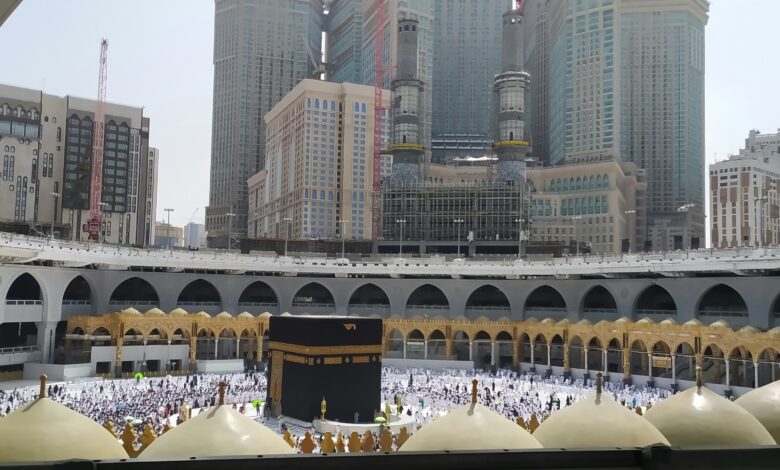
Makkah, the holiest city in Islam, holds a deep spiritual significance for Muslims around the world. It’s the place where millions turn their hearts five times a day, aligning their prayers with the rhythms of the sacred land. Knowing the Makkah Prayer Time is essential for Muslims who wish to perform their Salah (prayers) at the correct moments, following the precise timings set by the movement of the sun. Whether you are a resident of Makkah, a pilgrim visiting for Umrah or Hajj, or simply someone who wants to stay connected spiritually, having accurate prayer timings helps you maintain consistency and devotion in daily worship.
The Importance of Prayer in Islam
Prayer, or Salah, is one of the Five Pillars of Islam. It represents the believer’s direct connection with Allah, performed five times a day: Fajr, Dhuhr, Asr, Maghrib, and Isha. Each prayer has its own time, based on specific solar positions. Muslims around the world, regardless of where they live, use the local prayer schedule to perform Salah in unity with the global Muslim community.
In Makkah, this connection feels even more profound. The Makkah Prayer Time carries added spiritual value because this is the very city where the Prophet Muhammad (peace be upon him) was born and received the first revelation of the Quran. Performing Salah according to the precise timings here not only fulfills a religious duty but also nurtures the soul and strengthens faith.
Understanding the Five Daily Prayers
To appreciate the importance of the prayer schedule, it’s essential to understand how each Salah fits into a Muslim’s daily life:
-
Fajr (Dawn Prayer): Performed before sunrise, Fajr symbolizes spiritual awakening and the beginning of a new day with faith.
-
Dhuhr (Noon Prayer): Observed after the sun passes its zenith, Dhuhr offers a moment of peace in the middle of daily activities.
-
Asr (Afternoon Prayer): Performed in the late afternoon, it reminds believers of patience and perseverance.
-
Maghrib (Sunset Prayer): Offered just after sunset, Maghrib marks gratitude for the day’s blessings.
-
Isha (Night Prayer): The final prayer of the day, Isha, brings calmness and reflection before rest.
By following the Makkah Prayer Time, Muslims align these moments of devotion precisely with the city’s solar cycle, ensuring their worship is timely and accurate.
How Makkah Prayer Time Is Calculated
Prayer times in Makkah are determined using astronomical calculations that consider the sun’s position relative to the horizon. The timings are typically adjusted based on three key factors:
-
Latitude and Longitude of Makkah: These determine the sun’s rising and setting points.
-
Angle of Twilight: This affects the Fajr and Isha timings since they depend on when the first and last light of day appear.
-
Islamic Conventions: Different regions and scholars may follow slight variations in calculation methods, but the difference in Makkah is minimal due to its precise religious observance standards.
Today, many online tools, mobile apps, and mosques use these scientific methods to publish the daily Makkah Prayer Time schedule, ensuring accuracy to the minute.
The Role of Technology in Prayer Timings
In the past, believers relied on the muezzin’s call from the minaret to know the prayer time. Today, technology makes it easier than ever to stay updated. Muslims can access the Makkah Prayer Time instantly through websites, mobile apps, or smart devices that send reminders for each Salah.
Apps like Muslim Pro, IslamicFinder, and local mosque applications provide accurate timings for Makkah and other cities. They even adjust automatically for daylight saving or regional changes. This convenience allows Muslims worldwide to remain spiritually connected with Makkah, no matter where they are.
For those living abroad, syncing their prayers with Makkah Prayer Time can be a meaningful way to maintain a spiritual link to the holy city.
Spiritual Connection to Makkah
Performing Salah while knowing the Makkah Prayer Time brings a deeper sense of unity among Muslims. Every second of prayer in Makkah feels sacred, as the city houses the Kaaba the direction (Qibla) toward which all Muslims face during Salah.
Many believers find peace in aligning their prayers with Makkah’s timing, imagining their voices joining the countless others echoing across the holy city. During Hajj and Umrah seasons, this spiritual energy becomes even more powerful. Standing shoulder to shoulder with believers from around the globe, united in prayer, is a humbling reminder of faith’s global bond.
Prayer and Daily Life in Makkah
For residents of Makkah, daily life flows naturally around the rhythm of the five prayers. Shops close briefly during Salah, and the sound of the Adhan (call to prayer) fills the streets, inviting everyone to pause and turn toward the mosque.
At Masjid al-Haram, the world’s largest mosque and home of the Kaaba, thousands of worshippers gather for each prayer. The atmosphere during these moments is truly unique calm yet filled with a profound sense of devotion. Visitors often describe the experience of praying here as the most peaceful and spiritually uplifting moment of their lives.
Tips for Checking Makkah Prayer Time Accurately
To ensure you never miss a prayer while in or connected to Makkah, follow these simple tips:
Use Trusted Sources: Websites like IslamicFinder, Al Jazeera Prayer Timings, and official Makkah mosques publish accurate daily schedules.
Install Reliable Apps: Mobile apps automatically update prayer times based on your location.
Follow Local Adhan: If you’re near a mosque, listening for the Adhan is the most authentic way to track Salah timings.
Adjust for Travel: If you’re visiting Makkah, make sure your devices reflect the local time zone (Arabia Standard Time, GMT+3).
Check Daily Updates: Since prayer times slightly change daily due to the sun’s position, always confirm the latest schedule.
By keeping track of the Makkah Prayer Time, you ensure that your worship remains in harmony with the sacred timing of the city itself.
Unity Through Prayer
Prayer doesn’t just connect a believer to Allah it unites the entire Muslim Ummah. At any given moment, millions of Muslims worldwide are bowing, standing, and prostrating in devotion, following the rhythm set by their local prayer times. For those following Makkah Prayer Time, this unity takes on even deeper meaning, as Makkah represents the heart of the Islamic world.
When Muslims everywhere align their prayers toward the same direction and follow the same cycle of worship, they reaffirm a bond that transcends geography and culture a bond built on faith, peace, and devotion.
Conclusion
Knowing and following the Makkah Prayer Time is not just about accuracy it’s about connection. It connects you to your faith, to the Prophet’s legacy, and to millions of believers across the globe who turn toward Makkah in worship.
In a world full of distractions, prayer offers peace and purpose. And when those prayers are guided by the sacred timing of Makkah, every moment of Salah becomes even more meaningful.
Whether you’re performing Fajr at dawn or ending your day with Isha under the stars, each prayer is an opportunity to reconnect with Allah, with your purpose, and with the spiritual heart of Islam.




